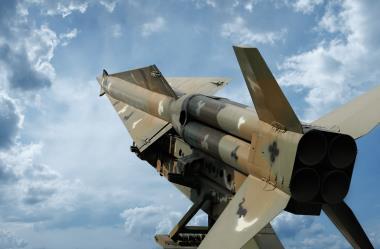StrategicRISK spoke to two al-Qaeda experts to analyse the threat from international terrorists
Anna Murison is head of Global Jihad Analysis at Exclusive Analysis and Karlin Younger is a global issues analyst at Control Risks. Both analysts agreed that while al-Qaeda’s organisation and its capabilities have changed it still represents a key threat in the contemporary world.
Potential targets
“Europe and the UK is still an attractive target for al-Qaeda,” said Murrison. “This is because of it’s role in the Iraq war and it is seen as being close to the US. Also large numbers of people travel between Pakistan and the UK every year, helping disguise the movements of a small minority who are interested in making contact with al-Qaeda and carrying out attacks.”
Younger believes that, following the death of Bin Laden, al-Qaeda may attempt to mobilise an attack that was planned well before his death. But they may not be capable of planning and executing a new plan in such a short time, she said. Transport networks have the highest risk of being affected with aviation being the main aspirational target.
Future of al-Qaeda
Younger said that the death of Bin Laden was “a blow to the organisation, but he already had a marginalised role.”
Murison thinks his death “is likely to accelerate the fragmentation of Al Qaeda” because “there is nobody like him there to take his place.”
However, both analysts mentioned Ayman al-Zawahiri as a likely candidate to take the helm of al-Qaeda.
Murison went on to explain that the death of Bin Laden will not result in a significant increase of the likelihood of a terrorist attack in the west.
This is because Al Qaeda’s networks in Europe and the US have been undermined by counter-terrorist efforts and the death of Bin Laden does not mean that these networks are suddenly going to re-establish themselves.
Changing tactics
Murison explained that there is an increase in the chance of attacks from low capability individuals, as opposed to expensive, co-ordinated attacks by large groups. Younger brought up the case of Nidal Malik Hassan, a Major in the US Army, who, killed 13 people at the Fort Hood military base in Texas in 2009. Hassan had been in contact with al-Qaeda’s Anwar al-Awlaki.
Al Qaeda normally tries to use bombs as a means of attack, but surveillance by the security services means that individuals who try to purchase bomb making equipment will normally get spotted. This increases the lieklihood that would-be terrorists shift to lower-tech tactics, like firearms attacks, explained the analysts.
Both exeperts agreed that al-Qaeda would continue to use the internet to spread propaganda to harness the grievances and frustrations of individuals and recruit them to their cause.
Younger explained that in Yemen, one of these core grievances is unemployment, but that the overarching motivation is the “cosmic struggle” between believers and non-believers.
Murison explained that “al-Qaeda has already encouraged Western individuals inspired by its ideology to stay in their own countries and attempt attacks, rather than travel to places like Pakistan, Yemen and Afghanistan which increase their chances of detection.” Murison added that, “Pakistan was important for recruitment, but Al Qaeda are increasingly wary of intelligence leaks.”
New threats
Al-Qaeda in the Arabian Peninsula (AQAP) has been garnering a lot of media attention in recent years. Yemen has become the primary base of operations for this terrorist organisation. The cargo bomb plot of November 2010, and the “underwear bomber” plot of December 2009 both originated in Yemen.
These two examples demonstrate the trend of a move to less sophisticated attacks, with less people involved and less money being invested, explained the analysts. Some anti-terrorist operations have inhibited al-Qaeda’s funding, but not to the extent that the group is incapacitated, they say.
The political instability and relative lack of counter terrorist operations in Yemen means that it is easier for al-Qaeda network to operate here than in, for example, Pakistan.
Murison commented. “this increases the likelihood of an attack in Saudi Arabia, obviously because it’s right next door to Yemen. For some time, there has been the aspiration within al-Qaeda to launch an attack in Saudi Arabia.”
Cyber plots
Regarding the prospect of cyber terrorism from al-Qaeda, Younger believes that the group will use the internet as a medium for planning and as means of “globalising their agenda and ideology”, but that there is not a great risk of cyber attacks. Murrison also said that the threat was very small.
Murrison went on to cite the example of Rajib Karim, a former British Airways employee, who was working with al-Qaeda to organise a terrorist attack. Karim was a software engineer at BA, and could have incapacitated the company’s IT systems causing huge disruption.
Al Qaeda did not take this opportunity and went on planning a larger scale, physical attack. The authorities got to Karim before he could launch his attack and he has been sentenced to thirty years in jail. Murrison suggested that Al Qaeda’s lack of interest in cyber terrorism is caused by it’s a hierarchical structure as the older, more authoritative members don’t understand the potential power of cyber attacks.
Impications of the Arab revolutions
Younger explained that the revolutions in North Africa have had a negative impact on al-Qaeda as they have made terrorism a less attractive prospect. She commented, “the situation in North Africa decreases the appeal of Al Qaeda’s ideology.”
However, she went to explain that this could change depending on whether democratic institutions are established in these countries following the collapse of the previous regimes.
Although globalisation was arguably one of the key factors that brought about political and social revolutions in North Africa, Younger stated that, “in some areas, globalisation has served to reinforce grievances and marginalise Muslim communities.” She went on to say that huge economic development has caused certain Muslims to feel more alienated. Although violent Jihadists thankfully remain a small minority.
A positive effect of globalisation is that multi-lateral counter terrorism operations have been put in place and different authorities can work together to fight against the terrorist threat.



















